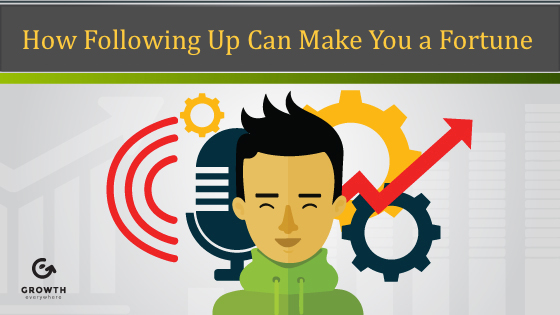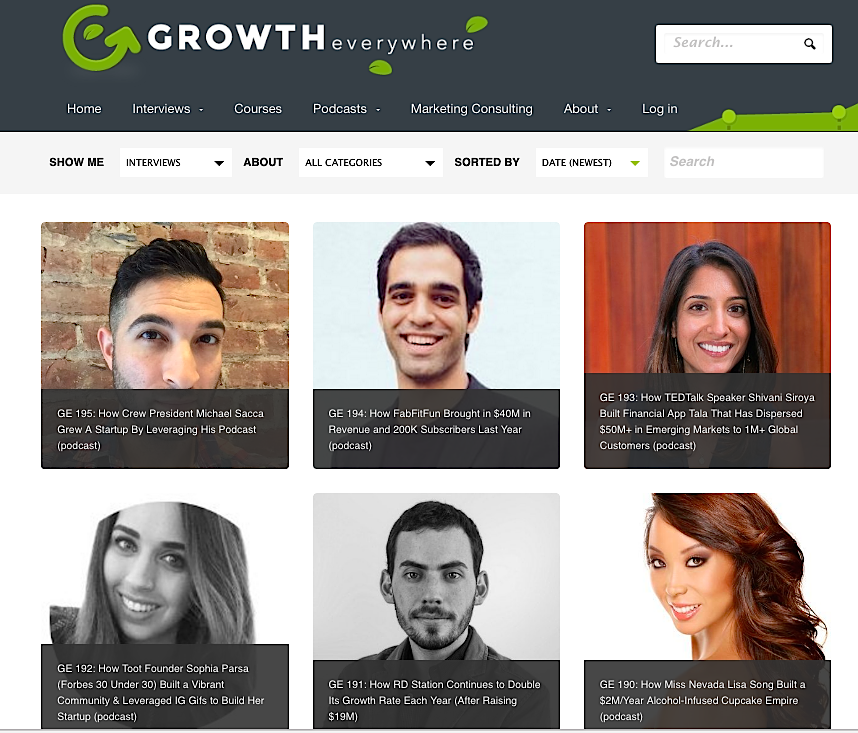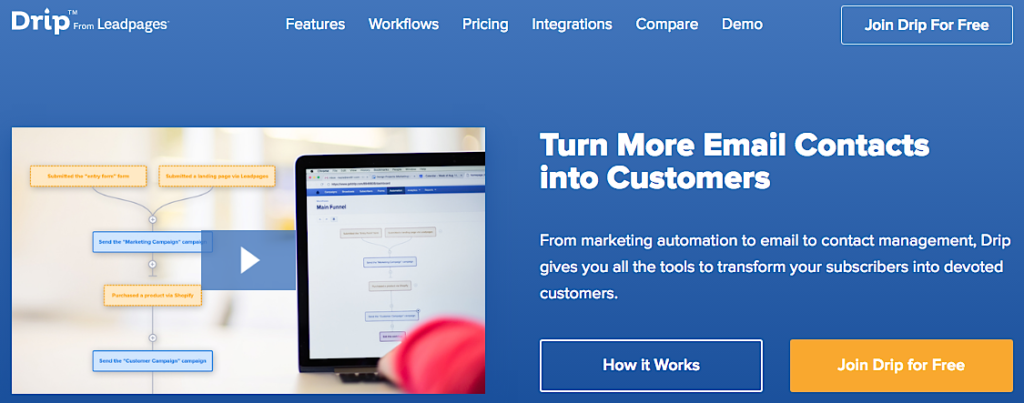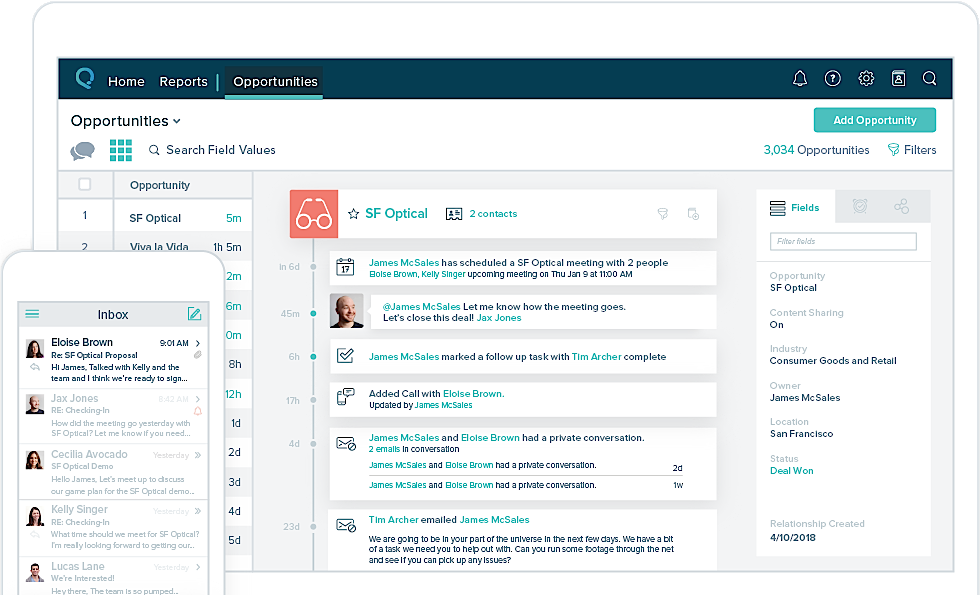
Motivational speaker John Maxwell is famous for saying “The fortune is in the follow-up.”
But what does that mean?
If you are doing sales, trying to close a deal or whatever, you usually are not going to get it on the first shot, especially if it’s a high-dollar offer. We’re talking maybe a couple thousand dollars or more, maybe even five figures. You’ll need to get on the phone, you have to talk to people, and there has to be a personal touch to your follow-ups.
But let’s be real: if you’re running any kind of profitable, scaling business, you probably have hundreds of leads (if not clients). Following up with each of them in a personalized manner is ideal, but it isn’t realistic. That’s where email marketing automation comes into play.
Learn More: How to Get Higher Email Open Rates (Without Being Spammy)
We have people who stay on our email list for a year to two that don’t become our clients. We’re talking to people from publicly traded companies who aren’t ready to raise their hand yet. Without any further context, this can be disheartening. But I was just on a call yesterday and one of my prospects said, “I keep opening your emails because they’re actually helpful.”
For our email automation sequence, we don’t just do a fire-and-forget sequence that’s canned or obviously a template.
I love giving our subscribers Growth Everywhere interviews because they’re evergreen stories about how entrepreneurs started out, the struggles they went through and how they overcame them, what customer acquisition channels are actually working for them, etc. There’s value in those interviews for anyone.

Nowadays, everybody needs to be a media brand, so you start with the content first and you figure out what’s evergreen. What type of content will provide value to people over time, whether that’s 5 years down the line or 10 years down the line? Those stories never change.
At the bottom of each email, we have a blog RSS to email sequence. Basically, whenever a new blog post comes out, it’ll push to our email address, and I’ll say at the very bottom: “By the way, if you need marketing help, click here.” Then we’ll track that link, and this actually generates a good amount of conversions. About 1.5% of people on the list sign up for free consultations.
For us, it’s totally worth it because we know a free consultation is worth a little over $300.
If you’re a relatively small business (7 figures per year), you probably don’t need to be looking at HubSpot, Marketo, Eloqua, etc.


Learn More: Cold Emailing: Best Outbound Sales Automation Tools
Now, let me ask you a question: Do you think you should be working on the green, the yellow or the red prospects first?
I think most of you would say that you should be working on the ones that are most likely to close: the green prospects. Now, my argument is that you should be working on the ones that are on the fence, because you can actually push these guys over into the green category or straight into a purchase.
Let’s talk in football terms. Green prospects are literally one yard away from the end zone. Even without your encouragement, they’ll likely take that final step and you’ll have a touchdown on your hands.
Yellow, on-the-fence prospects are at the 10-yard line, which means you’re 10 yards away from scoring a touchdown. The 10-yard line is still a maybe, but the effort you spend on them will make a big difference because they’re already so close relatively speaking (compared to red prospects).
How do you stay on top of these people? How you continue to follow up? SalesforceIQ will track events for people. If we had 50 events from one prospect over the last 30 days, that’s probably a green prospect. They’re visiting our website or interacting with our emails in some way or another multiple times per day.
But if another prospect only has 10-20 events in 30 days, that’s probably a yellow prospect who’s on the fence.
We just did a study on 1 million backlinks on Udemy, and guess what? Three of our long-term yellow prospects—big companies—all got off the fence. One of them said, “Okay, we’re ready to move forward on something now, we’d like to add on services.” Another one had been dormant since August of last year, and now they’re ready to move forward.
It’s doing things like this, where you’re continuing to add value over time without really expecting anything in return, that stands out to your subscribers. Rarely have I ever gotten somebody that flat out says, “Don’t reach out to me anymore.” In fact, I think that’s probably only happened to me once in my life, and we’re talking thousands upon thousands of emails sent.
People appreciate persistence, especially if you’re reaching out to founders or other high-level, VIP-type prospects. Every founder and entrepreneur has gone through a stage where they had to power through things, where they were just being very persistent in the beginning and eventually they got through, so they can recognize your persistence and appreciate it.
So don’t be afraid to follow up with people. Don’t think that you’re being annoying, because the fortune is in the follow-up. The people who follow up the most are the people that win.
I keep going back to Growth Everywhere as an example of persistence paying off. In my first year, I had almost no listeners. By my second year, the numbers had gone up, but not nearly as much as I would have liked. Only by year three did Growth Everywhere’s listener count really begin to take off in a big way.
Learn More: How We Built the Growth Everywhere Podcast to 109,000 Listens per Month
So, be patient. Be patient with content, be patient with SEO, be patient with sales, and you’ll eventually get there. It’s not like I’ve done anything super special – I just kept following up and kept staying consistent.
This post was adapted from Eric’s Facebook Live videos: Growth 90 – DAILY live broadcasts with Eric Siu on marketing and entrepreneurship. Watch the video version of this post:
Enter your email to get free instant access